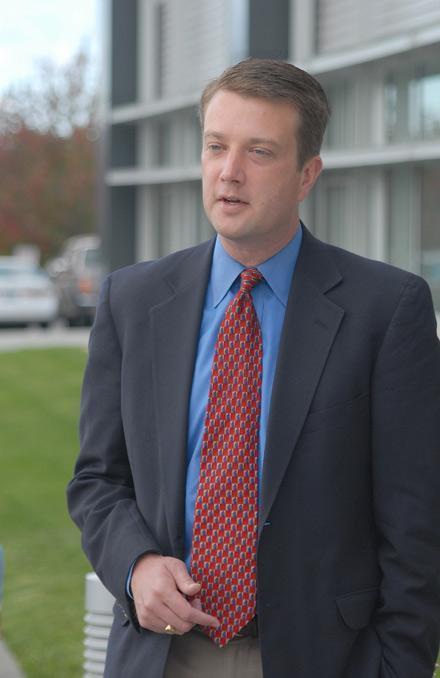Senator teaches class on elections
LEARN ABOUT POLITICS. State Sen. Joe McDermott will teach a two-night, non-partisan political course at South Seattle Community College. The first class will be before the election, the second class after the election, on the ins and outs of the election process, political terminology, and an analysis of the results. The course is $15 and open to the public.
Mon, 10/20/2008
The anticipation of Election Day offers more than hope and change to Americans because it also promises confusion and cynicism to many who will either vote or elect to stay home.
To navigate through the fog of spin, attack ads, and myth on both sides of the aisle, State Sen. Joe McDermott will offer a two-night, pre- and post-election course at South Seattle Community College's Continuing Education Department.
Next Monday, Oct. 27, he will explain the ins and outs of the national election process. On Nov. 10 he will discuss the results, what happened, and why.
"I come from a different perspective, a different world, being immersed in politics, and people who don't travel in that same world don't have the same vocabulary," said McDermott, a 34th District Democrat, unopposed in the upcoming election.
McDermott is hoping his class will attract new immigrants.
"In some countries they don't have a real choice who to vote for," McDermott said. "In our system we have contested elections, but the reality is that's not the situation around the world."
"I got the idea for this class when I met a Russian student just about to get her citizenship and I said, 'Great! Now you get to vote!' She rolled her eyes and said it wouldn't matter anyway," said Laura Matson of the college Continuing Education Department. "And I thought if new citizens shared the cynicism other folks have developed here, we were in trouble. The idea was getting a class going to understand that every vote counts, and the class will demystify the results. When you watch CNN you can understand where the numbers come from."
"We will discuss terms like 'perfect voter,' and 'swing state,' and why we have an electoral college and not a national election," said McDermott. "If a national election was held, meaning everyone voted in the primaries on the same day, candidates would have to raise all their money ahead of time, and a higher amount. It boils down to a money game.
"How do we allocate delegates, and why does Iowa have so much influence? Sen. (Hillary) Clinton will tell you she received more primary votes than any other candidate in history, so why doesn't she have the nomination?"
McDermott, who is volunteering his time for the course and has taught history and political science at the college, said this class is non-partisan and "not aimed at persuasion in the least." Still, he will point out that it was unfair for Clinton to count her Florida and Michigan votes as those states "decided to disregard party rules," especially since Sen. Barack Obama's name was not even on the Michigan ballot.
Are attack ads effective?
"People will uniformly tell you they hate them and say 'Don't run them.' But research shows they are effective. Local officials are calling Barack 'Hussein' Obama to raise questions about where his loyalties are and is he truly a Christian. I thought we were done with that 48 years ago with Kennedy when voters realized that, although (Kennedy) was Catholic, the Pope wasn't running the country.
"I've also heard it suggested that Sen. McCain, when in captivity, gave more than his name, rank, and serial number and therefore was a traitor."
McDermott finds this attack distasteful.
"The man was in captivity for years and chose not to be released when he knew he'd be used as a propaganda stunt. Those kinds of 'whisper campaigns' on both sides are not about who will lead us through economic problems and foreign policy."
Aside from taking his course, McDermott suggested reading the New Yorker and the National Review, the New York Times and others "to get variety of sources and not to be spoon-fed fodder from either candidate, frankly."
As for the tendency that people vote for politicians because they share their race, gender, and other qualifiers, "I'd advise voters to find the positions and issues of the candidate. I'm not going to vote for a person simply because they're gay," said McDermott who is openly gay. "I'm going to vote for the best person for that office. I might pay more attention and learn more about an openly gay candidate but would not support him for that reason alone."
Class cost: $15. For more information, go to: www.learnatsouth.org. Then click "Click Here to Get Started!" then click "politics"
Steve Shay may be contacted at steves@robinsonnews.com


